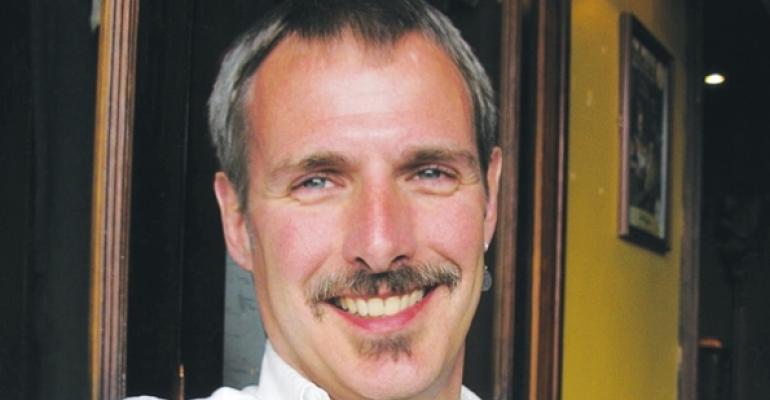On the surface 2012 was a good year for the beverage industry. Although excitement over cocktail culture seemed to fade a bit, there remained plenty of interest in mixology, which translated to near-boom times for many premium spirits. Despite worries over market saturation, craft beer continued to perform extremely well, while light beer held firm, and a handful of new releases from the major global breweries made headlines. And the wine market within the U.S. remains vibrant and strong, especially at the top end of the price range.
Will 2013 follow apace? We asked some industry notables to gaze into their crystal balls and tell us what they see coming up on the horizon.
Noting that “consumers are becoming comfortable with a wider array of grape varieties,” Geoff Kruth, master sommelier and the chief operating officer of the Guild of Sommeliers, predicted greater varietal variation in the domestic wine market.
“As new American wineries look to differentiate themselves in a crowded market, [expect] more experimentation with less familiar grapes in 2013,” Kruth said.
Elsewhere on the wine front, Evan Goldstein, master sommelier and president and chief executive of Full Circle Wine Solutions Inc., said he sees kegged wine gaining popularity.
“The idea of serving wine by the glass has taken on a whole new angle as wine is invading a space held historically for beer only,” Goldstein said. “Serving wine by the keg is fresh, greener in the supply chain and a win-win cost proposition,” he said.
Goldstein said he also likes the idea of versatility in wine-by-the-glass options and sees developments in that area.
“You are seeing more and more sommeliers eschew the ‘only what’s officially being poured by the glass’ dogma of the past and opening up bottles on the fly to pair with the dishes of wine-savvy diners,” he said.
Beer innovations
On the heels of several recent beer-style innovations, John Holl, beer journalist and author of the forthcoming “The American Craft Beer Cookbook,” sees more variation on the horizon.
“Following the rise and acceptance of the black IPA, brewers are turning styles upside down, with nothing apparently off the table,” Holl said. “Also, thanks to new ingredient providers and demand, I expect that we’ll see more beers that feature nothing but locally grown malts and hops, giving people a chance to truly drink local.”
Erika Rietz, the editor-in-chief of Draft magazine, said she envisions a spicier future for beer drinkers.
“I love the heat, [so] I’m excited about the spate of new beers which incorporate chile peppers as an ingredient,” Rietz said. “I look forward to a variety of beer styles peppered with chiles, showcasing both the sweet, vegetal flavor and the killer spice.”
On the spirits front, Lew Bryson, managing editor of Whisky Advocate magazine, offered a pair of predictions.
“Flavored whiskeys will continue to emerge in every category except Scotch and Japanese,” he said, noting that the success of existing flavored whiskeys is sure to beget imitators. Additionally, Bryson cautioned that it would be wise to “not bet against Irish whiskey this year,” predicting that “the rise of Irish will continue.”
Paul Clarke, a contributing editor at Imbibe magazine and publisher of The Cocktail Chronicles at www.cocktailchronicles.com, said he thinks that 2013 will be “the year of the déclassé cocktail — Long Island Iced Teas, Harvey Wallbangers and other drinks cocktail snobs love to hate, all revamped with premium ingredients in craft-cocktail fashion.”
Clarke also said that the time of rum has finally arrived. With rum-centric bars cropping up in cities across the United States, “the spirit of the Caribbean will continue its boom in the American drinks scene,” he said.
Spirits and cocktail specialist Gaz Regan said he sees the future not in products but in people.
“Next year will be a landmark year for bartenders, [and] the world will see just how much influence they have on people everywhere,” he said. “Recent charity events organized by bartenders ... have raised tens of thousands of dollars, [and] this is just the tip of the iceberg. Bartenders can, and will, change the world.”




